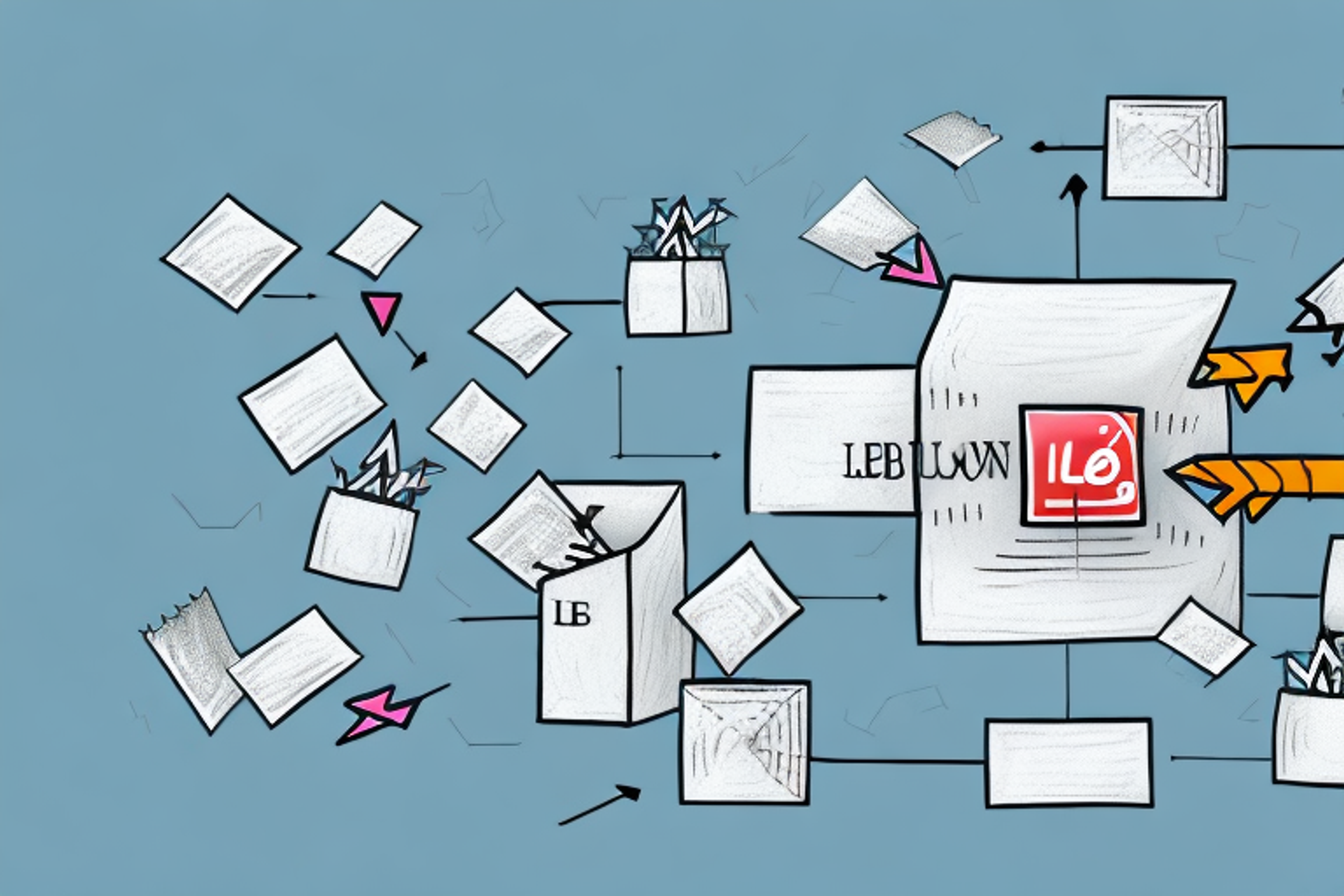Private Equity ETFs: What to Know
Discover everything you need to know about Private Equity ETFs in our latest article. Learn how they work, their benefits, and potential risks.
Posted April 10, 2025

Table of Contents
Private Equity ETFs (Exchange Traded Funds) are a relatively new type of investment vehicle that have gained popularity in recent years. In this article, we will explore what Private Equity ETFs are, how they work, and the benefits and risks associated with investing in them. We will also discuss key features of popular Private Equity ETFs, factors to consider before investing, and how to evaluate performance. Additionally, we will cover tax implications and offer some top Private Equity ETF picks for 2021. Finally, we will take a look at the future of the Private Equity ETF market.
The Definition of Private Equity ETFs
First off, let's define Private Equity ETFs. Essentially, a Private Equity ETF is a fund that pools money from investors and uses that money to invest in a diversified portfolio of private equity assets. These assets may include venture capital, buyouts, and distressed debt. Private Equity ETFs trade on stock exchanges and are bought and sold like any other stock.
Private Equity ETFs are becoming increasingly popular among investors due to their potential for high returns. However, they also come with a higher level of risk compared to traditional ETFs. This is because private equity investments are not publicly traded and are therefore less liquid, meaning it can be difficult to sell them quickly if needed.
Investors should also be aware that Private Equity ETFs often have higher fees compared to traditional ETFs. This is because the management of private equity investments requires more specialized knowledge and expertise. It's important to carefully consider the fees and potential risks before investing in a Private Equity ETF.
How Private Equity ETFs Work
When you invest in a Private Equity ETF, your money is used to purchase an ownership stake in a portfolio of private companies. These companies may be in different stages of development, such as seed stage, growth stage, or mature stage. The ultimate goal is to achieve a return on investment, either through the sale of the company or through dividends paid out to investors. Private Equity ETF managers use their expertise to manage the portfolio and make investment decisions on behalf of investors.
It's important to note that investing in Private Equity ETFs comes with a higher level of risk compared to traditional stock investments. Private companies are not required to disclose financial information, making it difficult to assess their true value. Additionally, these investments are typically illiquid, meaning they cannot be easily sold or traded. However, for investors willing to take on the risk, Private Equity ETFs can offer the potential for higher returns and diversification in their investment portfolio.
The Benefits of Investing in Private Equity ETFs
There are several benefits to investing in Private Equity ETFs. First, they offer a way to invest in the private market without having to be an accredited investor or having a high net worth. Private Equity ETFs are also more liquid than traditional private equity investments, as they can be bought and sold on stock exchanges. Additionally, Private Equity ETFs provide diversification, as investors can gain exposure to a broad range of private equity assets with just one investment.
Another benefit of investing in Private Equity ETFs is that they typically have lower fees compared to traditional private equity investments. This is because Private Equity ETFs are passively managed, meaning that they track a specific index and do not require active management by a fund manager. This can result in lower costs for investors, which can ultimately lead to higher returns. Furthermore, Private Equity ETFs offer transparency, as investors can easily track the performance of their investment and see the underlying assets held by the ETF. Overall, Private Equity ETFs can be a valuable addition to an investor's portfolio, providing access to the private market with lower fees and greater liquidity.
Risks Associated with Private Equity ETFs
Like any investment, Private Equity ETFs come with risks. One risk is the potential for decreased liquidity during times of market stress. Additionally, Private Equity ETFs are subject to the risk that the underlying assets may not perform as expected, resulting in losses. There is also the possibility of high management fees, which can eat into returns.
Another risk associated with Private Equity ETFs is the lack of transparency. Unlike traditional ETFs, Private Equity ETFs may not disclose all of their holdings, making it difficult for investors to fully understand the risks they are taking on. This lack of transparency can also make it challenging to accurately value the ETF, which can lead to pricing discrepancies and potential losses for investors.
Finally, it's important to note that Private Equity ETFs are not suitable for all investors. These types of investments are typically geared towards more sophisticated investors who have a higher risk tolerance and a longer investment horizon. Investors should carefully consider their own financial situation and investment goals before investing in Private Equity ETFs.
Key Features of Popular Private Equity ETFs
Some popular Private Equity ETFs include Blackstone's BXPE, Global X's PFFD and Invesco's PSP. These ETFs offer exposure to a range of private equity assets, such as venture capital and buyouts. They also offer different fee structures and investment strategies, so it's important to do your research before investing.
One important factor to consider when investing in Private Equity ETFs is the level of diversification they offer. Some ETFs may focus on a specific sector or region, while others may have a more diversified portfolio. It's important to assess your own investment goals and risk tolerance to determine which ETF is the best fit for you.
Another key consideration is the liquidity of the ETF. Private Equity ETFs may have lower trading volumes and higher bid-ask spreads compared to more traditional ETFs. This can impact the ease of buying and selling shares, as well as the overall cost of investing. It's important to understand the liquidity of the ETF before making any investment decisions.
The Differences between Private Equity ETFs and Traditional ETFs
There are several key differences between Private Equity ETFs and traditional ETFs. First, Private Equity ETFs invest in private equity assets, whereas traditional ETFs invest in publicly traded stocks and bonds. Additionally, Private Equity ETFs tend to have higher fees than traditional ETFs, since they require more active management. Finally, Private Equity ETFs are less liquid than traditional ETFs, as they typically have fewer shares outstanding and trade less frequently.
Factors to Consider Before Investing in Private Equity ETFs
Before investing in a Private Equity ETF, it's important to consider several factors. These include your investment objectives, risk tolerance, and investment time horizon. Additionally, you should consider the fund's management team and investment strategy, as well as any fees associated with the investment. It's also important to make sure you understand how the fund is structured and how it is taxed.
Another important factor to consider before investing in a Private Equity ETF is the current market conditions. Private Equity investments are typically illiquid and have a longer investment horizon, so it's important to assess whether the current market conditions are favorable for this type of investment. Additionally, it's important to research the underlying companies in the ETF's portfolio and assess their financial health and growth potential. This can help you make a more informed decision about whether the ETF aligns with your investment goals and risk tolerance.
How to Evaluate the Performance of Private Equity ETFs
To evaluate the performance of a Private Equity ETF, you should look at several factors. These include the fund's returns, its volatility, and its expense ratio. You should also consider how the fund compares to its benchmark and to other similar funds in the market. Finally, you should look at the fund's performance over a long period of time to get a better sense of how it performs in different market conditions.
Tax Implications of Investing in Private Equity ETFs
Private Equity ETFs can have different tax implications than traditional ETFs. For example, some Private Equity ETFs may be structured as partnerships, which can result in certain tax advantages and disadvantages. Additionally, Private Equity ETFs may generate more taxable income than traditional ETFs, as they may hold assets that generate income such as interest or dividends. It's important to consult with a tax professional to understand the tax implications of investing in Private Equity ETFs.
Top Private Equity ETF Picks for 2021
For investors interested in Private Equity ETFs, here are some top picks for 2021:
- Blackstone's BXPE
- Global X's PFFD
- Invesco's PSP
These ETFs offer exposure to a range of private equity assets and have a track record of strong performance. However, it's important to do your own research and consider your own investment objectives before investing in any of these funds.
The Future of the Private Equity ETF Market
The Private Equity ETF market is expected to continue growing in the coming years, as more investors look for ways to gain exposure to the private market. However, it's important to keep in mind that the market is still relatively new and evolving, and there may be new risks and opportunities that arise. As always, it's important to do your due diligence and work with a trusted financial advisor to make informed investment decisions.












